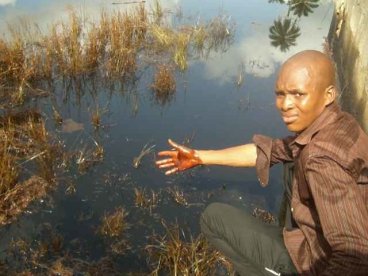Nigerian Youth Climate Coalition and the Nigeria Youth Climate Action Network
Presents
Tweet Meet on the growing concerns of Oil Spill in the Niger Delta:
Twitter: #OilSpillNG , Wenesday 25th 2012, 4pm (GMT +1) ->> 5 pm Nigerian Time
Facilitators: Esther Agbarakwe (NYCC) and Hamzat B. Lawal (NYCAN)
Background
The Niger Delta is one of the 10 most important wetland and coastal marine ecosystems in the world and is home to some 31 million people. The Niger Delta is also the location of massive oil deposits, which have been extracted for decades by the government of Nigeria and by multinational oil companies. Oil has generated an estimated $600 billion since the 1960s. A United Nations environmental assessment report released in August in 2011 said Shell’s operations were responsible for the contamination of farmlands and rivers in the Ogoni area of the Delta, The reports calls for a clean-up fund of $1bn for spills in Ogoniland, and says it will take 25-30 years to restore the environment. Much of the funding for the clean-up is expected to come from the oil companies. Despite this, the majority of the Niger Delta’s population lives in poverty. The United Nations Development Programme (UNDP) describes the region as suffering from “administrative neglect, crumbling social infrastructure and services, high unemployment, social deprivation, abject poverty, filth and squalor, and endemic conflict.” The majority of the people of the Niger Delta do not have adequate access to clean water or health-care. Their poverty and its contrast with the wealth generated by oil, as become one of the world’s starkest and most disturbing examples of the “resource curse”.
Most recently, Nigerian coastal and fishing communities were on Thursday Dec 22. 2011 put on alert after Shell admitted to an oil spill that is likely to be the worst in the area for a decade, according to government officials The company said up to 40,000 barrels of crude oil was spilled while it was transferred from a floating oil platform to a tanker 75 miles off the coast of the Niger delta.
This discussion would focus on various dimension of the crisis: the impact of pollution and environmental damage caused by the oil industry, human rights issues of the people living in the oil producing areas, government actions/inactions and the role of the Nigerian role in protecting our ecosystem.
The goal is to engage the government and demand more proactive actions while inspiring youth to become development actors in their communities
